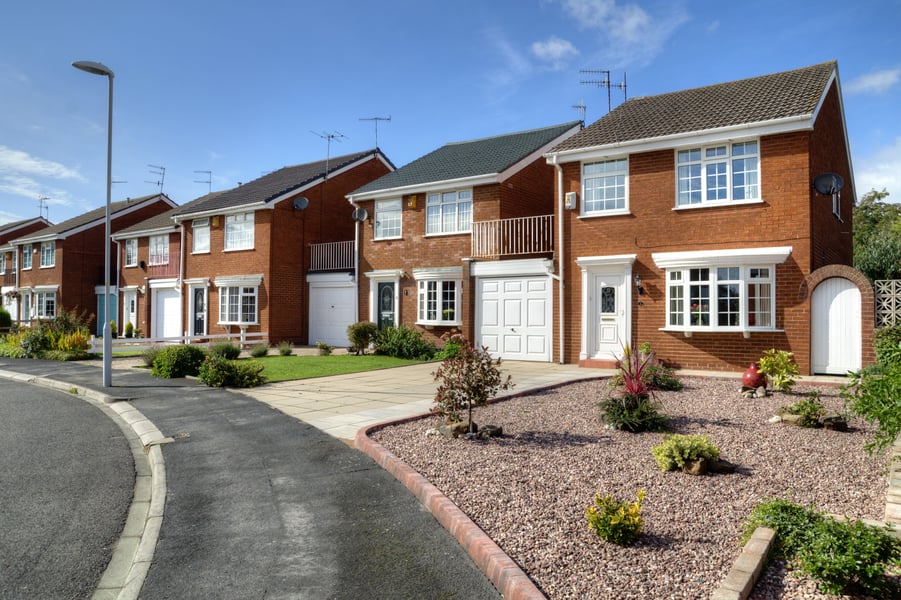New build completions rose from 183,570 in 2016/2017 to 195,290 in 2017/2018, a 6.4% increase, housing supply datafrom the Ministry of Housing, Communities and Local Governmenthas found.

New build completions rose from 183,570 in 2016/2017 to 195,290 in 2017/2018, a 6.4% increase, housing supply datafrom the Ministry of Housing, Communities and Local Governmenthas found.
This represents a slowdown from last year’s rate of growth, which was 11.9%.
Annual housing supply in England amounted to 222,190 net additional dwellings in 2017-18, up 2%on 2016- 17.
Russell Quirk, chief executive and founder of estate agency Emoov.co.uk, said: "Whilst the increase in new homes delivered is of course welcomed, there is a huge dose of caution needed here before the Ministry of Housing Communities and Local Government reaches for the Bollinger in celebration.
“Year-on-year growth in supply has dwindled to just a whimper atjust 2% and at this rate of growth the government target of 300,000 new dwellings delivered each year will take 15 years to reach"
However Communities Secretary James Brokenshire welcomed the statistics.
He added: “Today’s figures are great news and show another yearly increase in the number of new homes delivered, but we are determined to do more to keep us on track to deliver the homes communities need.
“That’s why we have set out an ambitious package of measures to deliver 300,000 homes a year by the mid-2020s. This includes over £44 billion investment, rewriting the planning rules and scrapping the borrowing cap so councils can deliver a new generation of council housing.”
The 222,190 net additions in 2017-18 resulted from 195,290 new build homes, 29,720 gains from change of use between non-domestic and residential, 4,550 from conversions between houses and flats and 680 other gains (caravans, house boats etc.), offset by 8,050 demolitions.
In 2017-18, the 195,290 new build completions accounted for 88% of the net change, the largest component of new homes.
'Change of use' is the second largest component with a gain of 29,720 dwellings (13% of the net change).
Conversions added 4,550 dwellings, 2% of the net change, and there were a further 680 other gains, 0.3% of the net change. Demolitions resulted in a loss of 8,050 dwellings, -4% of the net change.
Net additions from change of use decreased in 2017/18, down by 7,470 (20%) on the previous year. This component includes the amendments to ‘permitted development rights’ making it easier to change buildings to residential use.
New build completions increased by 11,720 (6%). Since 2015-16, new data have been collected on dwellings from change of use under permitted development rights.
Joseph Daniels, founder of modular smart homes developer Project Etopia, said: “The country faces a race against time to get house building up to speed but the needle has barely moved in the last year, rising from a walk to a gentle jog.
“Failing to maintain the building rate from one year to the next is a socially unsustainable policy as the gap between the ‘haves and have nots’ widens each year. The growth rate in the number of new homes being built has slumped from 11.9% in 2016/17 to 6.4% in 2017/18.
“Young people and families desperately want to get on the housing ladder but are hamstrung by weak supply of new homes.
“Despite the desperate need for new housing, fewer homes became available in 2017-18 than 10 years ago. Clearly the political capital that has been invested in talking about solutions to the housing crisis is not translating into working capital on the ground.
“A fresh approach to house-building is needed, along with a greater sense of urgency, to ensure people are provided with quality accommodation in the future.
“Councils can look to innovative modular homes, which are high-quality and, more importantly, can be built extremely quickly, as a way to catch up to their house-building targets —but authorities and the government alike must act quickly to rapidly pick up the pace or they will only fall even further behind.”


